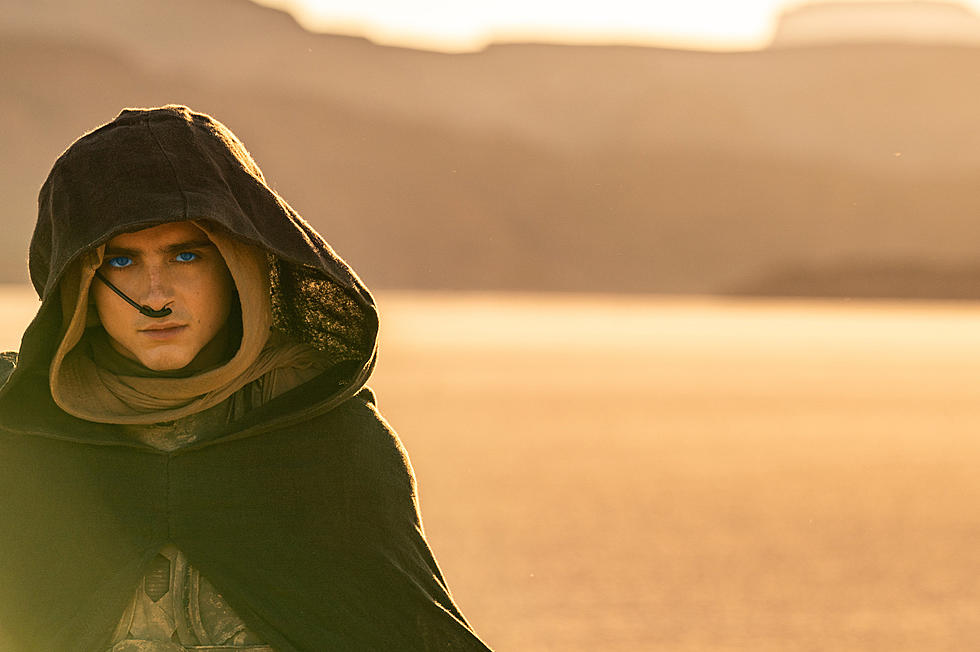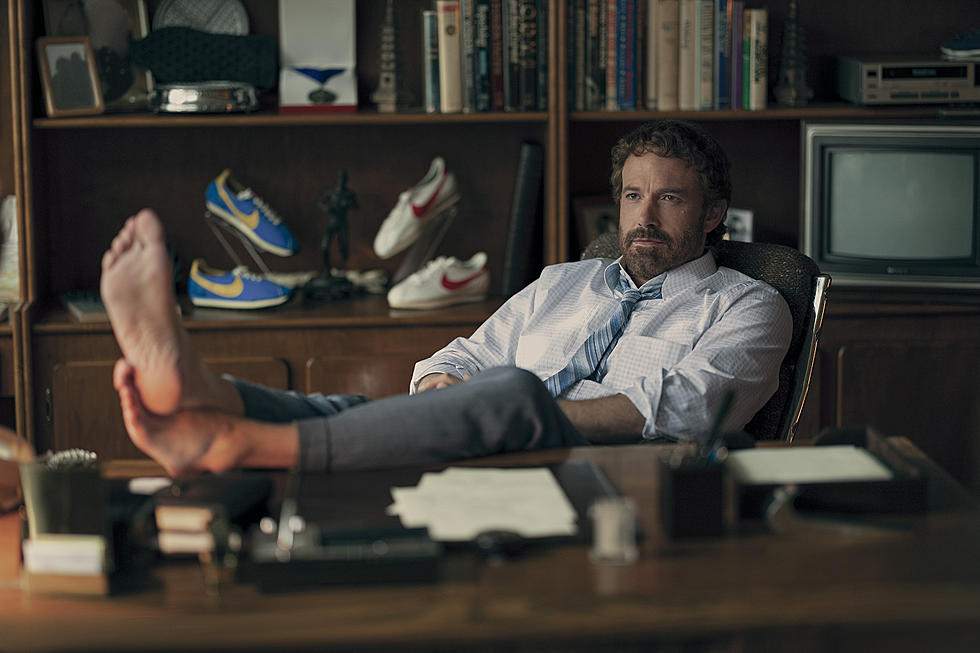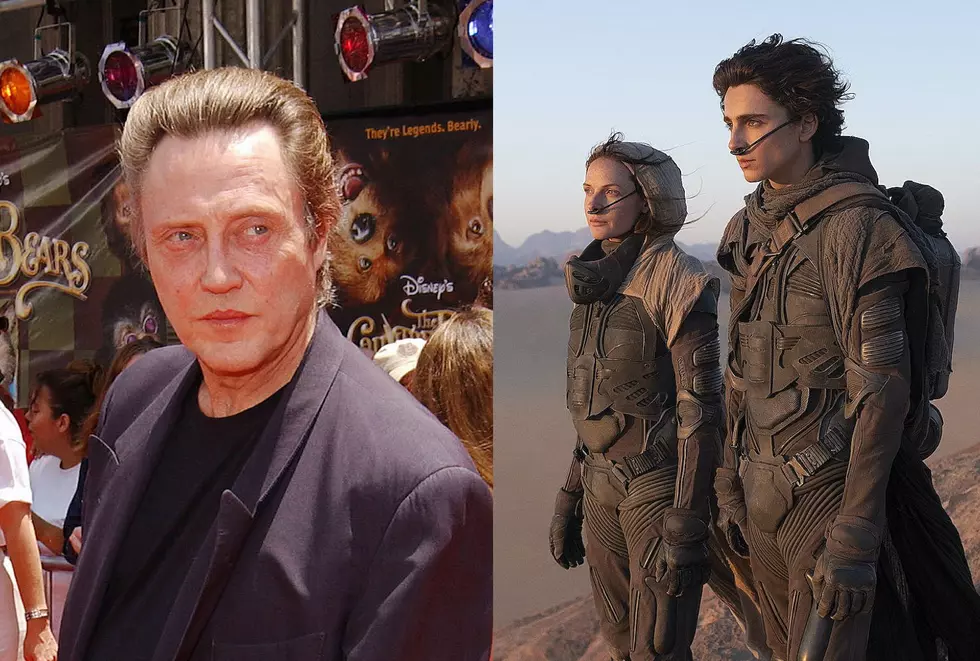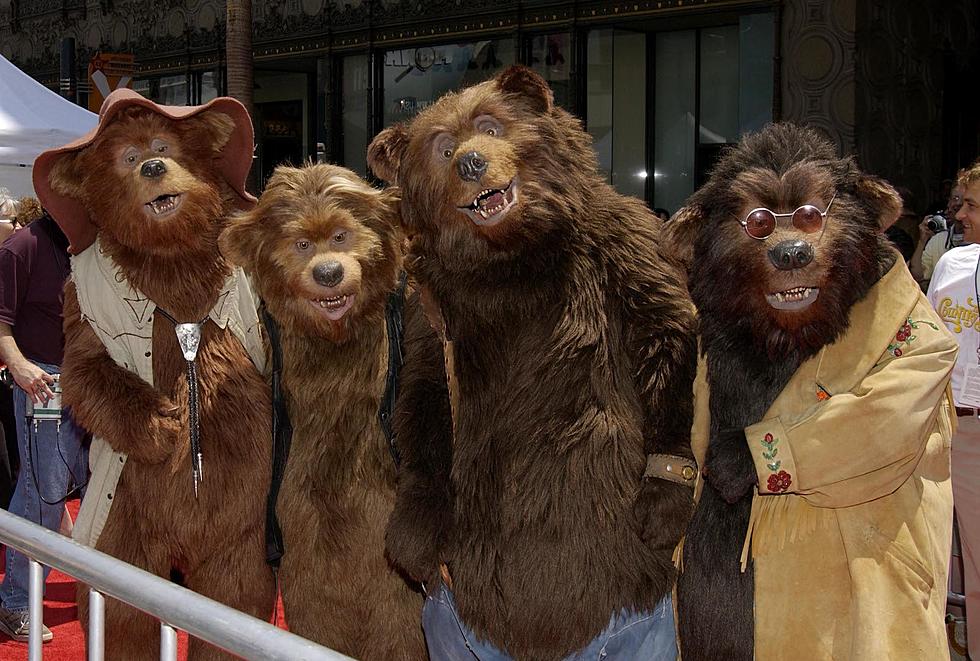
‘The Family Fang’ Review: Jason Bateman’s Creative Take on a Dysfunctional Family Drama
When it comes to art, how far is too far? For Annie and Baxter Fang’s performance artist parents, there were no limits.
In The Family Fang, the second directorial effort from Jason Bateman, Annie (Nicole Kidman) and Baxter (Bateman) were known as Child A and Child B. Growing up role playing in their parents Caleb and Camille’s controversial performances, the kids helped put on public hoaxes. They staged a bank shoot-out where their mother (a young version played by a much underused Kathryn Hahn) faked her death, posed for family photos with fake blood in their mouths, and got in planned arguments in parks. For Caleb and Camille, their performances were all about creating unrest, using staged violence and panic to wake people from their daily monotony. Though Annie and Baxter have tried to create names for themselves as adults, they return home to learn their parents have gone missing from a crime scene. While Annie believes her parents are performing their swan song, Baxter becomes convinced they might have actually been murdered.
Though a family drama on the surface, The Family Fang, based on Kevin Wilson’s 2011 novel, excels by using art as the lens to explore its characters. As a family of artists, each Fang has their own troubled relationship to creativity. Annie uses her acting career to distance herself from the fame of Child A, yet she’s become pigeonholed by rom-com roles. At one point a director insists she does a topless scene, and while it’s mainly a sexist ploy from a sleazy filmmaker, Annie does it to take control of her image, no longer living as her parent’s prop.
Baxter’s work as a novelist is a much darker examination of his trauma as Child B. His latest novel about an orphaned brother and sister revels in the fantasy of his parents’ death – if they were killed, are Child A and Child B finally free? But Caleb’s artistic visions are the most troublesome. A man consumed by a god complex to enlighten the world through his art, present-day Caleb (in a perfectly cast Christopher Walken) is so infatuated with the performance that he’s lost his grip on reality. Is Caleb a heartless narcissist for using his family for his own gain? And is art a worthy excuse to do so?
What The Family Fang does best is restrain from judgement, pulling back to raise questions instead of answer them. One scene finds two art critics bickering over the value of the Fang’s work. “Is it art or is it a joke? Is it profound or is it a prank?” one critic asks. Like many debates over the merits of various performance artists – the early work of Marina Abramović and her former lover Ulay come to mind most with the Fangs – there’s no one right answer. The Family Fang takes that debate and places it over a family founded on deceit to showcase how deeply art can both help and hurt us in relationships. Though Camille (her present-day version played by Maryann Plunket) is the only one to choose love over her career, putting aside her artistic dreams to support Caleb’s, all four Fangs are still stuck straddling fiction and reality. Art is their therapy, their way to exercise suppressed anger, but it’s also what distorts their perspective of real life. As Annie obsesses over exposing her parents’ murder plot, a sense of disgust and sadness overcomes Baxter as he begins to mourn their death. The film gets a lot darker than it purports to be as it asks, at what point does the role-playing end for us to start facing uncomfortable truths?
An impressive addition to Bateman’s directing resume, The Family Fang offers an uninterrupted and removed – though at times perhaps too removed – look at the richness of his characters’ complicated relationships. He also gives one of the best performances, alongside a meek Plunkett and a zany Walken. Kidman on the other hand brings an unwarranted melodrama to Annie, a character whose empathic outbursts feel out of place here. She may be playing an actress who’s been performing her whole life, but Kidman takes it a couple notches too high. The chemistry between Baxter and Annie, or lack thereof, also feels amiss. There’s an awkwardness between the two that make them seem less like brother and sister and more like distant cousins.
The film will surely leave you with some compelling questions to mull over, not just about parenting, but about the impact of death, whether real or imagined, and if one is more valid than the other. It may not be as poignant a story as its characters give way to, nor reach the cathartic resolutions it builds towards, but The Family Fang is still a refreshingly creative approach to the family drama.
More From ScreenCrush









